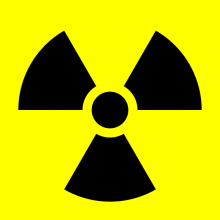The major world powers achieved a framework nuclear agreement with Iran that will roll back Iran’s nuclear program for at least 10 years, but that could also put Israel at serious risk. Israeli Prime Minister Benjamin Netanyahu, in his phone call with US President Barack Obama after the deal was announced, said in comments released by his office, “A deal based on this framework would threaten the survival of Israel… This deal would legitimize Iran’s nuclear program, bolster Iran’s economy, and increase Iran’s aggression and terror throughout the Middle East and beyond.”
The agreement, which still must be fleshed out into a comprehensive deal by the end of June, requires that Iran temporarily cut down its stockpile and production capabilities of nuclear fuel, in exchange for sanctions relief. The plan, released by the White House, claims it will push back Iran’s timeframe for developing a nuclear weapon—known as a ‘breakout’—from the current two-to-three months to 1 year or more for at least the next decade. Notably, the plan did not say what Iran’s breakout time would be after the 10 years of extensive restrictions on Iran expire.
The deal requires Iran scale down its centrifuges—which help turn uranium into nuclear fuel—from around 19,000 installed centrifuges to 6,104 installed centrifuges, of which just 5,060 could enrich uranium for ten years. It also places limits on the levels to which uranium can be enriched—low levels can power electric plants while high levels are weapons-grade—and limits Iran’s stockpile of enriched uranium for 15 years.
The timeframes were replete throughout the agreement, with essentially all of the restrictions coming off at the end of 15 years. Said the document, buy valium legally “For ten years, enrichment and enrichment research and development [R&D] will be limited to ensure a breakout timeline of at least 1 year.
“Beyond 10 years, Iran will abide by its enrichment and enrichment R&D plan submitted to the IAEA [International Atomic Energy Agency], and pursuant to” other agreed-upon restrictions.
In exchange, the deal provides for the lifting of American and European sanctions in place due to Iran’s nuclear program after the IAEA has “verified that Iran has taken all of its key nuclear-related steps. If at any time Iran fails to fulfill its commitments, these sanctions will snap back into place.”
US Congresswoman Illeana Ros-Lehtinen blasted the framework deal in a statement on her website. While noting that “the technical aspects are still uncertain,” the US legislator said that the major world powers “have outlined the parameters for Iran to maintain nearly every key aspect of its nuclear infrastructure.”
Furthermore, she noted that the sanctions relief “in return for Iran complying with the low bar already set will do nothing but grant the regime access to billions of dollars that it will surely use to continue to support terror… and seek covert and overt ways to achieve a nuclear weapon.”
She noted that it was “naïve” to believe that Iran would fully comply with the IAEA after “decades of diversions, stall tactics, obfuscation and obstruction.” She wasn’t alone in her concerns and Congress plans to look at the deal later this month.
Israel already knows what they think of the deal. Netanyahu told President Obama the deal “would not block Iran’s path to the bomb. It would pave it.”
(By Joshua Spurlock, www.themideastupdate.com, April 2, 2015)

